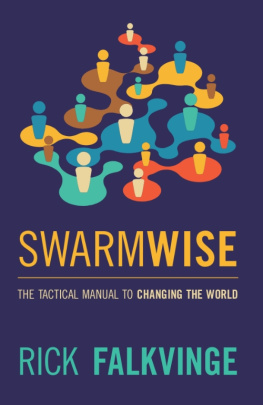Sex Offenders, Stigma, and Social Control
Critical Issues in Crime and Society
Raymond J. Michalowski, Series Editor
Critical Issues in Crime and Society is oriented toward critical analysis of contemporary problems in crime and justice. The series is open to a broad range of topics including specific types of crime, wrongful behavior by economically or politically powerful actors, controversies over justice system practices, and issues related to the intersection of identity, crime, and justice. It is committed to offering thoughtful works that will be accessible to scholars and professional criminologists, general readers, and students.
For a list of titles in the series, see the last page of the book.
Sex Offenders, Stigma, and Social Control
Diana Rickard
Rutgers University Press
New Brunswick, New Jersey, and London
Library of Congress Cataloging-in-Publication Data
Names: Rickard, Diana, 1961
Title: Sex offenders, stigma, and social control / Diana Rickard.
Description: New Brunswick, New Jersey : Rutgers University Press, [2016] | Series: Critical Issues in crime and society | Includes bibliographical references and index.
Identifiers: LCCN 2015037349 | ISBN 9780813578293 (hardcover : alk. paper) | ISBN 9780813578309 (pbk. : alk. paper) | ISBN 9780813578316 (e-book (epub)) | ISBN 9780813578323 (e-book (web pdf))
Subjects: LCSH: Sex offendersUnited StatesSocial conditions. | Sex offendersRehabilitationUnited States. | ProbationUnited States. | Stigma (Social psychology)United States. | Marginality, SocialUnited States.
Classification: LCC HV6592 .R53 2016 | DDC 364.15/30973dc23
LC record available at http://lccn.loc.gov/2015037349
A British Cataloging-in-Publication record for this book is available from the British Library.
Copyright 2016 by Diana Rickard
All rights reserved
No part of this book may be reproduced or utilized in any form or by any means, electronic or mechanical, or by any information storage and retrieval system, without written permission from the publisher. Please contact Rutgers University Press, 106 Somerset Street, New Brunswick, NJ 08901. The only exception to this prohibition is fair use as defined by U.S. copyright law.
Visit our website: http://rutgerspress.rutgers.edu
Contents
For their intellectual guidance, insight, and support of this project I would like to thank Rebecca Tiger, Karen Starr, Lynn Chancer, Bill Kornblum, Karen Terry, Michael Jacobson, and Barbara Katz Rothman.
Toward a Sociology of Sexual Offense
Sex Offender Policies: A Sociopolitical Context
Current sex offender policies are an important aspect of what critical criminologists have identified as the new penologya new era of punishment characterized by the decline of the rehabilitative ideal, the reemergence of expressive and retributive justice practices, an expansion of punitive methods of social control, and the management of ever larger segments of the population by the social control apparatus (Feeley & Simon, 1992; Garland, 2001a; Simon, 2000; Zimring, 2001).
The sex offender legislation that began in the 1990s evolved in the midst of the nations exploding incarceration rate. Since the 1970s the US rate of imprisonment has been steadily increasing and is now eight times higher than during that decade. No other country imprisons as high a percentage of its population (Jacobson, 2005, p. 5). During the last quarter of the twentieth century crime emerged as a central feature of electoral politics, both nationally and locally (Beckett, 1997; Simon, 2000), and the United States has witnessed a transformation of criminal justice practices that include the blurring of the line between inside and outside of the system through an expansion of punitive methods of social control into the community (Feeley & Simon, 1992; Wacquant, 2001). This carceral state is characterized by a form of governance where surveillance becomes routine, and a crime-centered approach shapes the activities of functionaries working in offices unrelated to the penitentiary (Lancaster, 2011, p. 141). With a continually increasing proportion of the population being directly managed by the criminal justice system (Simon, 2000) in their lives outside of an institution (on probation and/or parole and/or subject to registration/notification policies), the noninstitutional world for many begins to take on characteristics of the total institution (Goffman, 1990).
The new penology coexists within a climate of populist punitiveness that emphasizes zero-sum rhetoric and expressive and retributive forms of punishment (ibid.). In this framework, punishment practices are less driven by the practical need to manage classes of deviants, and more driven by the emotional need to express communities moral outrage. Megans Law is premised on the futility of attempting to treat sex offenders. It employs a symbolic cordon sanitaire (Young, 1999) and marks the offender as an outsider in a way that creates a negative symbolic capital that cannot be shed and will therefore weigh on its bearer for life (Wacquant, 2001, p. 100).
The new sex offender policies can be seen as part of a larger sociopolitical movement toward governance through crime (Simon, 2000; Zimring, 2001, p. 146) that includes the transformation of punishment practices (Simon, 2000). Like crime in general, child sexual abuse has been described as a valence issue (Beckett, 1996) in that there is no pro-crime or prosex offender lobby. There is no space in public discourse for alternative perspectives. The movement toward governing through crime is accompanied by new forms of political subjectivity. The new rhetoric of criminal issues in general and the sex offender rhetoric in particular locate all salient forms of threat in the deviant individual, and obscure other forms of social, cultural, and political conflict and victimization (Janus, 2006, p. 22). The new era of punitive justice mobilizes anger, resentment or vindictiveness, in contrast to preventative, reformative, or restorative ideals (Lancaster, 2011, p. 147). Expressing exasperation with the states ability to prevent serious violent crimes in high-profile cases, Megans Law places increasing numbers of community-dwelling people under greater civil control, monitored by the state and living under conditions that mark them as a dangerous outsider. Many convicted sex offenders have become life without form and value, stripped of political and legal rights accorded to the normal citizen (Spencer, 2009, p. 220).
An in-depth look at the lives of several typical convicted sex offendersthose whose victims were minors and who thus bear the added stigma of child molesterallows us to see how larger structural conditions bear down on lived experience, and how this in turn relates to identity maintenance and deviance. The analysis presented here explores the new subjectivity that has emerged as part of this political landscape. The narratives of the men depict crimes that are representative of the larger population of convicted offendersthese are not the dramatically heinous crimes that receive so much media attention.
A Brief Introduction to Study Participants
I felt like maybe... Im not even human any more.... I didnt want to go look for a job, I didnt want to leave the house. I just wanted to stay in one place. From there I couldnt wait to get home, like a storm was coming. I couldnt wait to get in the house, lock the door, dim the lights, and just, I felt safe.











